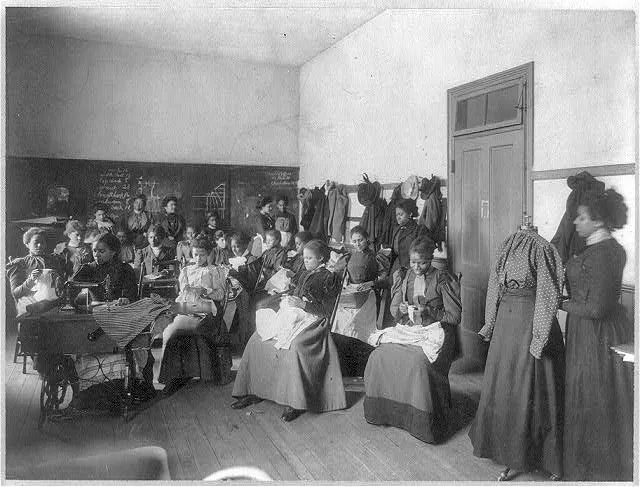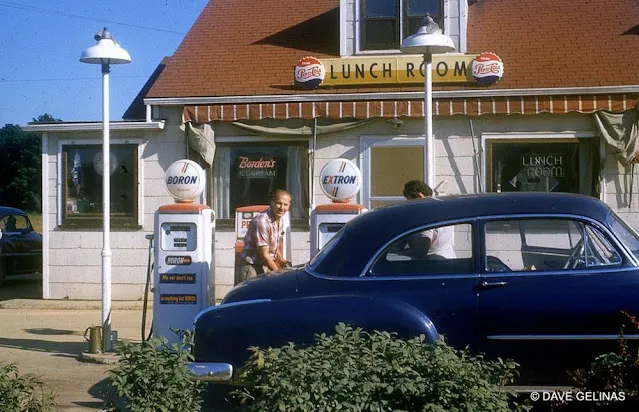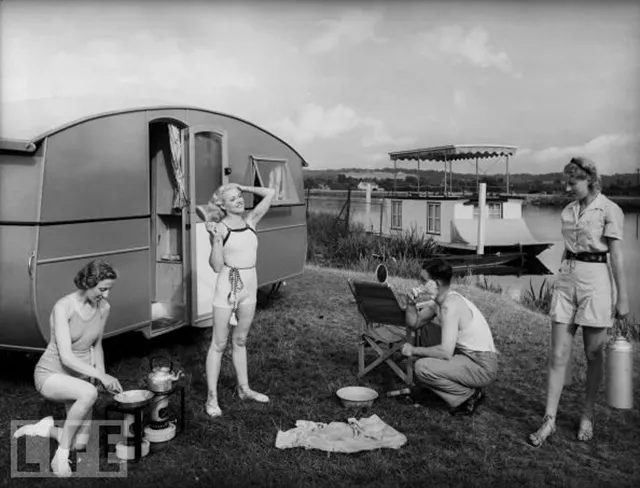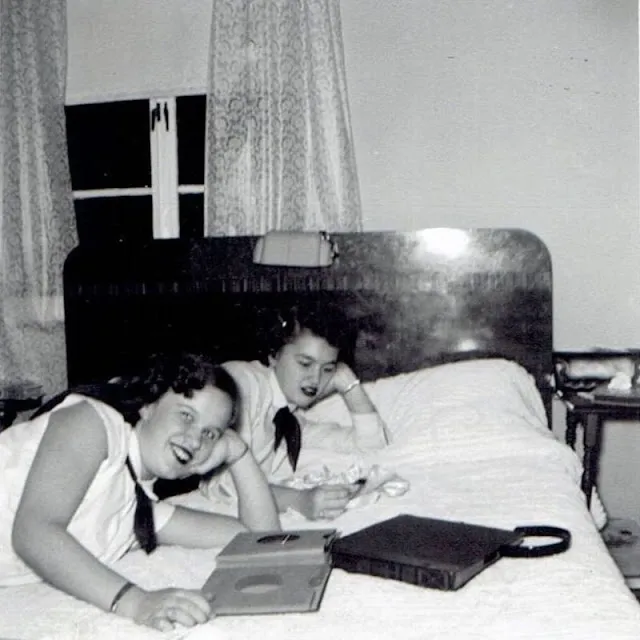As photographic technology advanced—cameras became more portable and film more sensitive to light, requiring shorter exposure times—people were no longer required to stay still for pictures. Walker Evans was among the photographers who capitalized on this flexibility. Between 1938 and 1941, he took his camera underground, where he photographed subway riders in New York City. “The guard is down and the mask is off,” he wrote, “even more than when in lone bedrooms (where there are mirrors). People’s faces are in naked repose down in the subway.”
In order to discreetly capture these candid Subway Portraits, Evans came up with an undercover method of taking photographs. He concealed his 35-millimeter Contax camera by painting its shiny chrome parts black and hiding it under his topcoat, with only its lens peeking out between two buttons. He rigged its shutter to a cable release, whose chord snaked down his sleeve and into the palm of his hand, which he kept buried in his pocket.
For extra assurance, he asked his friend and fellow photographer Helen Levitt to join him on his subway shoots, believing that his activities would be less noticeable if he was accompanied by someone. With these methods, Evans managed to capture people immersed in conversation, reading, or seemingly lost in their own thoughts and moods. His subjects’ faces display a range of emotions. He also succeeded in accomplishing a difficult challenge in making truly unposed portraits.
Candid Photographs Capture New York City Subway Passengers From the Late 1930s and Early 1940s
Candid Photographs Capture New York City Subway Passengers From the Late 1930s and Early 1940s
Candid Photographs Capture New York City Subway Passengers From the Late 1930s and Early 1940s
Candid Photographs Capture New York City Subway Passengers From the Late 1930s and Early 1940s
Candid Photographs Capture New York City Subway Passengers From the Late 1930s and Early 1940s
Candid Photographs Capture New York City Subway Passengers From the Late 1930s and Early 1940s
Candid Photographs Capture New York City Subway Passengers From the Late 1930s and Early 1940s
Candid Photographs Capture New York City Subway Passengers From the Late 1930s and Early 1940s
Candid Photographs Capture New York City Subway Passengers From the Late 1930s and Early 1940s
Candid Photographs Capture New York City Subway Passengers From the Late 1930s and Early 1940s
Candid Photographs Capture New York City Subway Passengers From the Late 1930s and Early 1940s
Candid Photographs Capture New York City Subway Passengers From the Late 1930s and Early 1940s
Candid Photographs Capture New York City Subway Passengers From the Late 1930s and Early 1940s
Candid Photographs Capture New York City Subway Passengers From the Late 1930s and Early 1940s
Candid Photographs Capture New York City Subway Passengers From the Late 1930s and Early 1940s
Candid Photographs Capture New York City Subway Passengers From the Late 1930s and Early 1940s
Candid Photographs Capture New York City Subway Passengers From the Late 1930s and Early 1940s
Candid Photographs Capture New York City Subway Passengers From the Late 1930s and Early 1940s
Candid Photographs Capture New York City Subway Passengers From the Late 1930s and Early 1940s
Candid Photographs Capture New York City Subway Passengers From the Late 1930s and Early 1940s
Candid Photographs Capture New York City Subway Passengers From the Late 1930s and Early 1940s
Candid Photographs Capture New York City Subway Passengers From the Late 1930s and Early 1940s
Candid Photographs Capture New York City Subway Passengers From the Late 1930s and Early 1940s
Candid Photographs Capture New York City Subway Passengers From the Late 1930s and Early 1940s
Candid Photographs Capture New York City Subway Passengers From the Late 1930s and Early 1940s












































